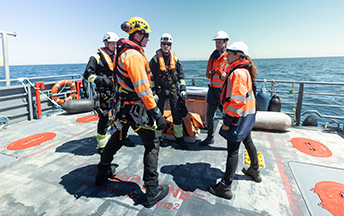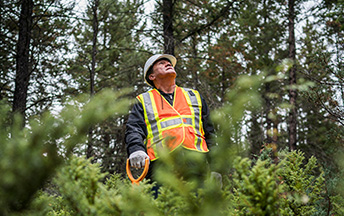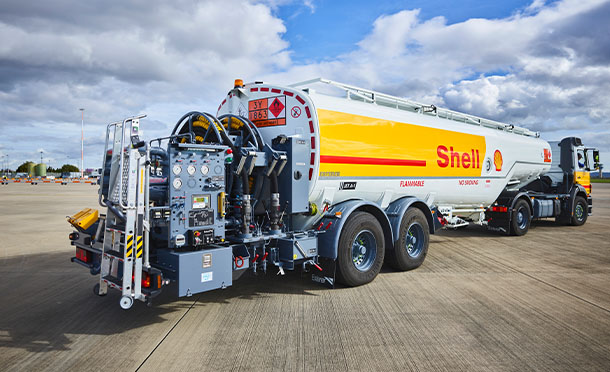Transport safety
Transporting large numbers of people, products and equipment by road, rail, sea and air poses safety risks. We seek to reduce these risks by developing best-practice standards within Shell. We also work with specialist contractors, industry bodies, non-governmental organisations and governments to find ways of reducing transport safety risks.
Safety at sea
We operate a global fleet of 25 tankers, liquefied natural gas carriers and the world’s first liquefied hydrogen carrier, the Suiso Frontier. We are one of the world’s largest charterers of oil and gas vessels. We also run safety checks (assurance) for more than 70,000 voyage proposals annually, enabling Shell’s businesses to play a vital role in providing energy security safely. The last serious injury or fatality on a Shell-operated vessel was in 2015.
Air safety
In 2022, our owned and contracted aircraft flew more than 35,000 hours and safely carried around 266,000 Shell employees and contractors to destinations all over the world. In addition, remotely piloted aircraft, also called drones, safely completed around 1,000 hours of survey and inspection flights.
Road transport safety performance
In 2022, Shell employees and contractors drove around half a billion kilometres on business in more than 50 countries, which is broadly in line with 2021. There was one fatality in Pakistan when a contractor colleague died during road transport activities under the operational control of Shell. The number of severe motor vehicle incidents increased from 8 in 2021 to 14 in 2022.
Data show that around 75% of vehicle incidents are related to fatigue or distraction. In 2022, we installed fatigue and distraction detection devices in around 2,400 vehicles operated by Shell or its contractors in countries where road transport risks are highest. The devices alert drivers if they detect fatigue or distraction.
Read more about transport safety at www.shell.com/sustainability/safety/transport-safety.










